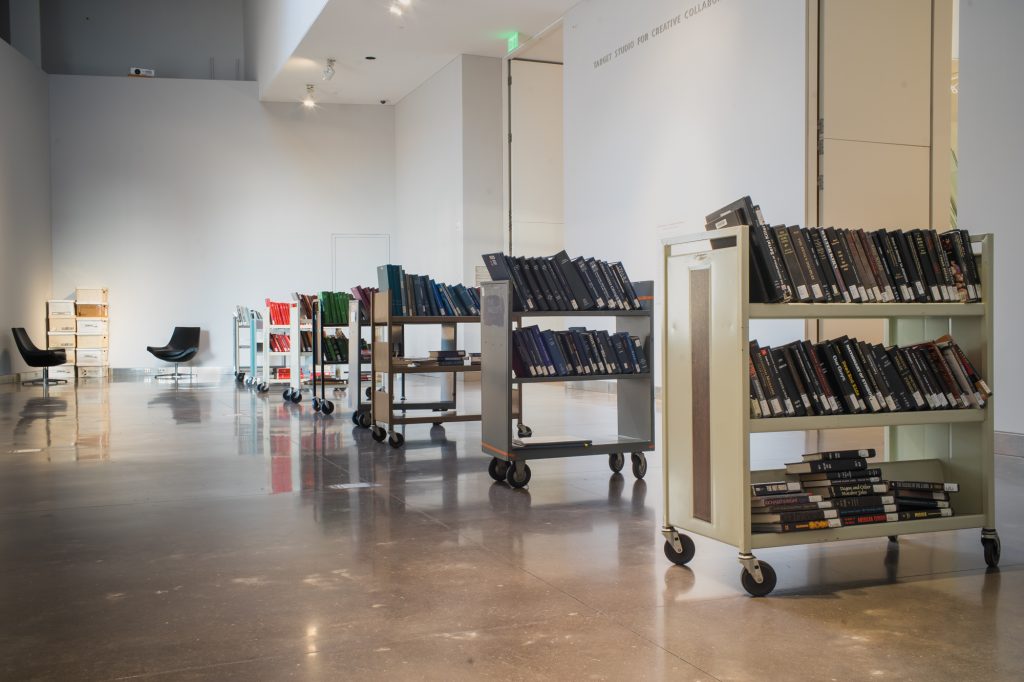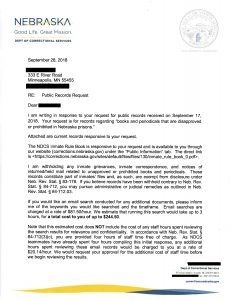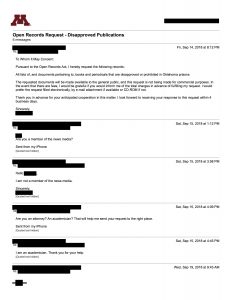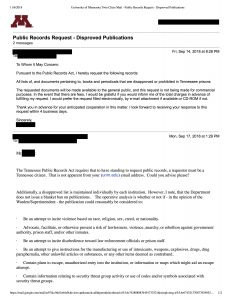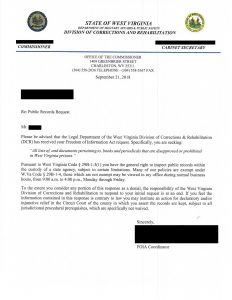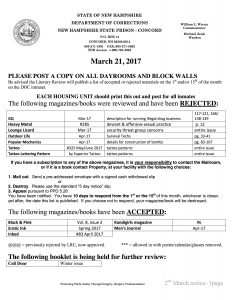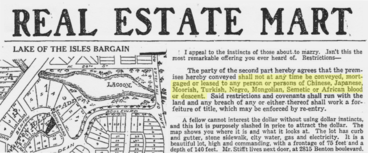The Section of Disapproved Books is an art project and data compilation by the artist Daniel McCarthy Clifford in collaboration with the Director of Data Management & Access at the University of Minnesota Libraries Besty Friesen, and multiple other actors. The installation consisted of over 600 publications banned in Department of Correction (DOC) facilities across the United States. All of these books were pulled from the University of Minnesota Library system for the duration of the project. This multi-layered and multi-labored project required the creation of a dataset of all publications that had been rejected upon delivery to state-run facilities in each state. I came on board to correspond with and organize information about disapproved publications.
I submitted public records requests to DOC communications staff in all 50 states. In preparation of the requests, I researched the Freedom of Information Act (FOIA) and each state’s particular laws surrounding public records. Although these acts and laws have similar purposes of governmental transparency, they work in different ways. The language itself varies, from “Idaho Public Records Act” to “Minnesota Government Data Practices Act”, to “New York Freedom of Information Law”, to “Rhode Island Open Records Act” or “Arizona Public Access Records Act”. The channels and rules of each piece of legislation also differ. For example, the New York Freedom of Information Law applies to executive and legislative entities, but not to judicial. Utah’s Government Records Access and Management Act applies to executive, judicial and legislative entities. The Alaska Public Records Act specifies a 10-day response time, while the Arizona Public Records Law specifies no response time except it’s use of the word ‘promptly’. I also looked to see if DOC facilities would require me to use a specific form to file my request—most didn’t but some did.
I composed a template for correspondence.
To Whom It May Concern:
Pursuant to the XXX Act, I hereby request the following records: All lists of, and documents pertaining to, books and periodicals that are disapproved or prohibited in XXX prisons.
The requested documents will be made available to the general public, and this request is not being made for commercial purposes. In the event that there are fees, I would be grateful if you would inform me of the total charges in advance of fulfilling my request. I prefer the request filled electronically by e-mail attachment if available, or CD-ROM if not.
Thank you in advance for your anticipated cooperation in this matter. I look forward to receiving your response to this request within X business days.
Sincerely,
Ray Barney
This email was sent to publicity, media, communication, or public records staff. In a few cases, there were no contact emails published on DOC websites. In these cases, I conducted online research through MuckRock: a non-profit organization that facilitates submission of Freedom of Information requests. This platform helped me find contacts at the DOC in order to submit my request.
There are five states that didn’t respond to my requests within six months: Indiana, Hawaii, Louisiana, Mississippi, and New York. My exchanges with Oklahoma DOC staff spanned several emails by the Public Information Manager asking if I was a member of the news media, an attorney, or an academician, all sent from their iPhone. A Legislative Liaison and Staff Attorney from Tennessee saw my email sent from a umn.edu address and asked if I was a Tennessee citizen, as the Tennessee Public Records Act only fills requests from citizens of Tennessee. DOC in West Virginia let me know that I was welcome to peruse their documentation, as long as I did it within their office, located in WV, during weekdays 9:00 a.m. – 4:00 p.m. Most exchanges were bureaucratically polite.
